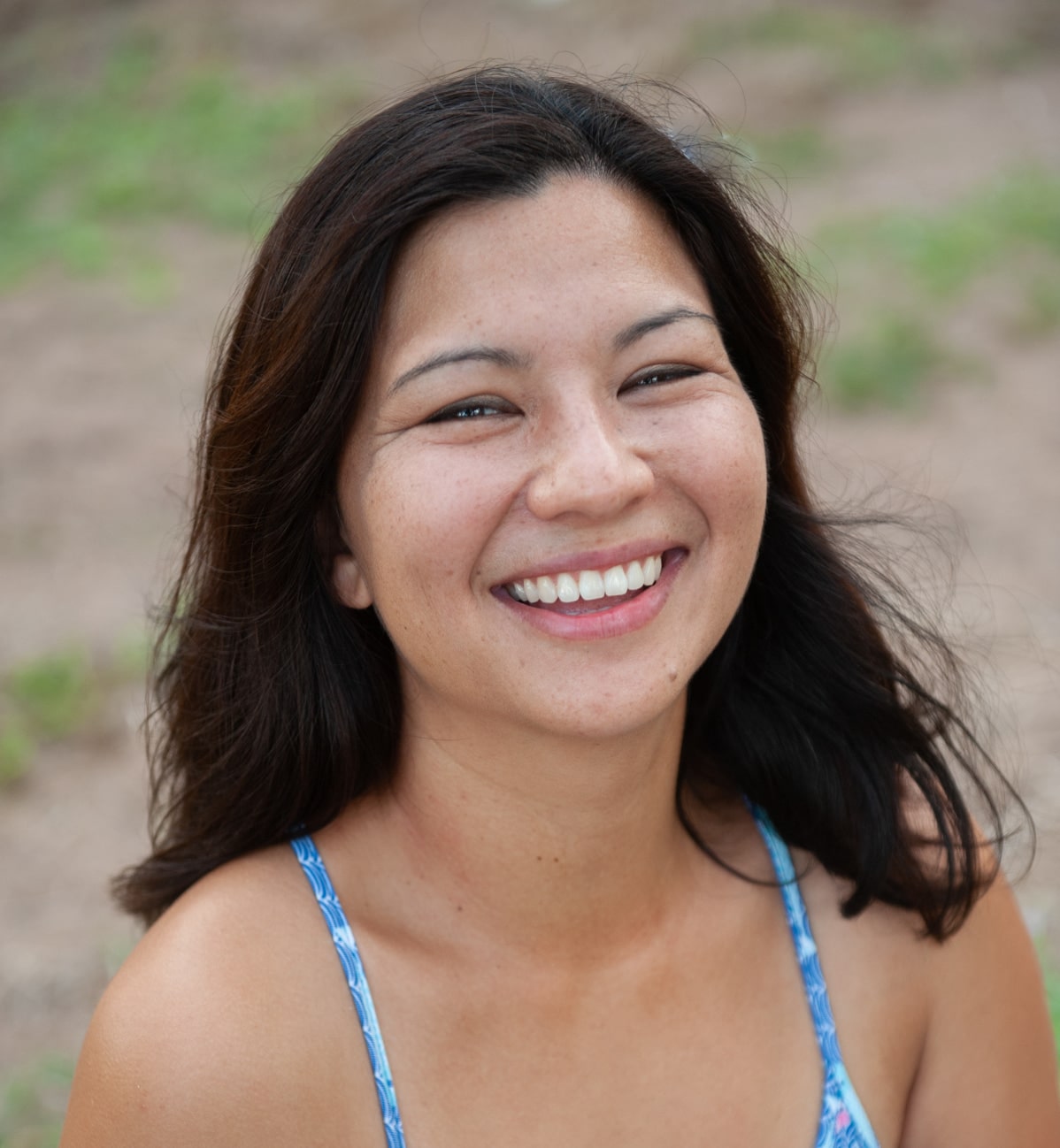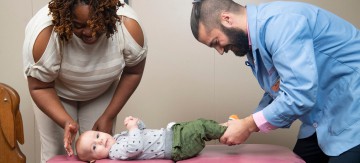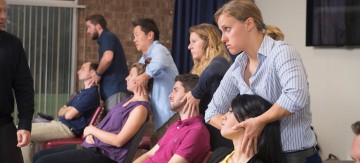What made you want to join the profession?
When I was 19, I crossed paths with a 1977 Sherman College graduate, Dr. Robert Fox. I thought, “A guy with this kind of clout has an extreme amount of confidence in what he does.” As I watched him adjust family and friends, I wondered, “How can someone know how to do that?” It seemed as if he knew with certainty right where to go on the body. I thought to myself, “There are so many mysteries in the world. Maybe this can be my thing. If I can come to understand how this works, how cool would that be?”
How has chiropractic changed your life?
Chiropractic has given me an outlet to excel in a way I never thought possible for myself. I was given the opportunity to develop my skills at something which has given me the confidence to know that no matter what happens in life, I always have a skill of great value to offer in exchange for goods or services. As we experience these uncertain times of COVID, this is a very comforting feeling.
How has your practice changed since COVID-19?
We have seen businesses around us die sudden deaths. We feared that COVID might shut us down, either immediately or extremely slowly. We have been lucky to have remained open through it all. The thing that has changed our practice is the immense gratitude we receive for being there for our patients, day in and day out. This is what fuels us and keeps us going.
How would you describe the value of your chiropractic degree?
This is an easy question. When I Google value, what comes up is: “the regard that something is held to deserve; the importance, worth, or usefulness of something.” I think the value is as good as you make of it as your life goes on. When I graduated from Sherman, I spent a year building a practice. I tried to sell it after a year for $50K. Location, goodwill, and equipment were all valuable. No one bought my practice. I spent the next three years on a chiropractic adventure in Asia. I made nothing beyond my living costs, but I experienced one thousand adventures. I consider this invaluable. Based on those experiences, I was able to build a multi-million dollar practice in Hawaii. So my simple answer to how I would describe the value of my chiropractic degree is: “highly.”
How are you doing in the field today?
In 2015, I was a one-woman show with two clinics, no staff, working six days a week. Five years later, I have five D.C.s working for me and a staff of 10 C.A.s. If you want to know what happened in those five years, so do I! It’s been a blur.
Why should someone still enroll in chiropractic school when our country is facing such uncertainty?
There will never be an end to stress, the cause of all dis-ease. We as chiropractors are needed now more than ever. 1895 was the beginning, and our profession was beaten and battered as we tried to find our place in society. In this century, people are ready to explore other options than just medications and surgeries. We are well respected in the healthcare industry. History has had a lot of curve balls. Life will always go on. Big idea: the sooner you start chiropractic school, the sooner you become a chiropractor.
What advice do you have for students thinking about the chiropractic profession?
It can be scary to take the big step onto a new path. In my mid-20s, I liked to imagine myself as incredibly successful 15 years down the line. I thought about the pep talks I might get from that wiser version of me. I envisioned the individual steps it would take to become her. Don’t think about the whole journey. Think about the next thing you have to do to move in the direction of the best version of you. It might be passing organic chemistry or deciding to move across country to go to the right school. It won’t be without a lot of risks, growing pains, and sacrifices. No risk, no reward.
What advice would you give current chiropractic students?
The world is moving very fast these days. If you choose to start your own practice, there are so many choices, and it can be very overwhelming. Don’t forget that you can run a chiropractic office with just your adjusting table and your hands. You can rent a room out of someone else’s office. We would all love a state-of-the-art office because it proves something to the world; however, you can prove yourself in different ways. If you don’t control your overhead, it will control you.
Did you have an “a-ha” moment while pursuing your degree in chiropractic, and if so, what was it?
I wish I could say that I did, but I would be lying. I saw so many who seemed like they belonged more than I did, simply because they were a third generation chiropractic student or more heavily tied into campus clubs. There was so much talent around me. I thought, if I just keep swimming, like Nemo, I will get there. I think this is an important answer for so many, because when you feel like you are just not quite there in either the art, science, or philosophy, it doesn’t mean that things are over. I hope this article can be some kind of “a-ha” to keep students going!
What is something you wish you knew about entering the chiropractic field before graduating?
It is important to have guidance and accountability from someone you trust to guide you and hold you accountable.
How does this profession give you purpose?
I don’t believe in specific purposes for myself; just to be good and fulfill my responsibilities. From a young age I wanted to be an artist. That has been on the back burner during my career, but I get a little kick in thinking that each adjustment is artistic in the way I choose to approach the subluxation.
How did working in other countries affect your perspective on chiropractic, health and how you practice?
In a nutshell, we, as philosophically minded members of the chiropractic profession, need to protect and cradle our very special profession. It is always susceptible. I worked in Vietnam and Singapore from 2010-2012.
In Vietnam, I encountered a savvy business woman who wanted her country to experience the healing powers of chiropractic. However, she wanted me to present chiropractic as she understood it: she asked me to include a vitamin to swallow with every adjustment so that the adjustment would be “believable.” I was provided with a two story clinic, the nicest digital x-ray machine I had ever seen, and 22 staff members dressed in pink nurse uniforms. I lovingly refer to this time as my comedic nightmare.
In Singapore, my job was incorporating chiropractic into the spa setting, where chiropractic might be “sold” alongside facials and massages in packs of 50, 75, or 100. We were pushed hard to sell.
In Asia, I was being strong-armed to change what chiropractic meant to me. I ultimately couldn’t do it. Working in this environment taught me not to take advantage of others for profit. I came to understand the golden rule. I learned to teach without the expectation of a return. I learned that I am temporary along another human’s path, but I do control my impact. When I finally arrived in Hawaii in 2013, I had been schooled by an education that was priceless.
What is the hardest part of your job?
It’s tough to find a balance in the roles of wife, mother, boss, and chiropractor. However, this is the order in which I prioritize my life. I would love to take on new patients and build a practice, but I hand them off to my associates because they are awesome and I have a self imposed limited adjusting schedule of 11 hours per week. All my patients are long term and understand that I love them and I will see them when I can.
What is the best part of your job?
My favorite part of the job is when I randomly answer the phone and hear the need in someone’s voice, especially someone who is doubting that chiropractic will work for them. When I can help the most difficult case I’ve ever seen, someone who can barely stand to be touched, who then shows incredible hope for their own future; this is my cherry on top.






